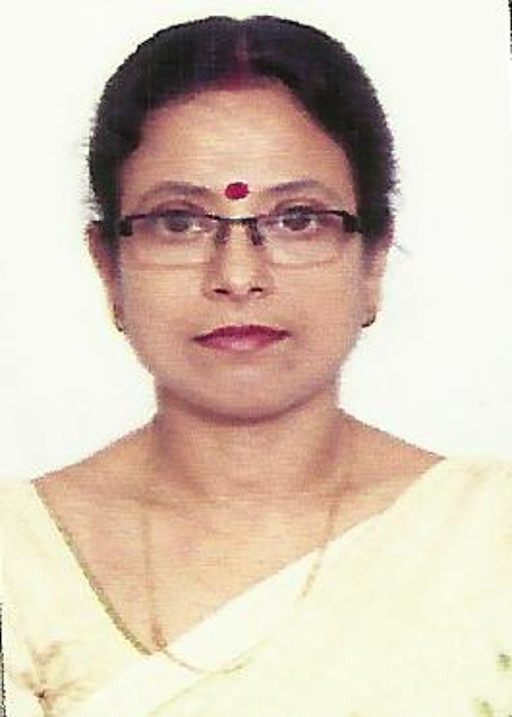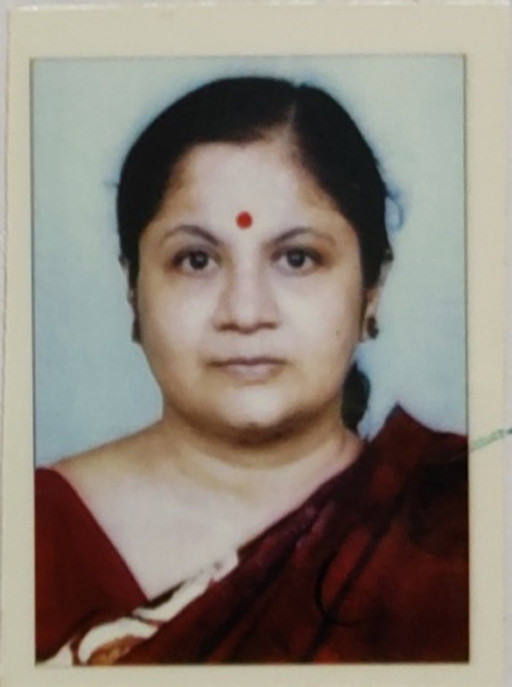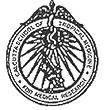Department of Biochemistry and Medical Biotechnology
Faculty
Name
Photograph
Designation
Educational Qualifications
Dr. Mandira Mukherjee

Associate Professor & HOD (In-Charge)
M.Sc., PhD
Dr. Anusri Tripathi

Assistant Professor (Molecular Biology)
M.Sc., PhD
Dr. Anjan Kumar Basu

Demonstrator
M.Sc., Ph.D
Dr. Biswanath Chakraborty

Chemist
M.Sc., PhD
Staff
Name
Designation
Mrs. Shanta Paul
Medical Technologist
Mrs. Jayeeta Das
Medical Technologist
Ms. Ankana Bhattacharyya
Medical Technologist
Mr. Bappa Halder
Medical Technologist CCU (Contractual)
Mr. Dhurpa Soren
Group D
Academic Courses
Ongoing research projects
Investigator
Title of the Project
Dr. Anusri Tripathi
Evaluation and characterization of crucial biomarker profiles for stratifying Dengue disease severity
Dr. Anusri Tripathi
Identification of prognostic markers for dengue disease severity and determination of antiviral effect of Quercetin against dengue virus
Dr. Anusri Tripathi
Evaluation of microRNAs targeting conserved sequences of Dengue untranslated regions among infected patients for therapeutic options
Publications
- Bose A, Charkaborty BC, Siva B, Nanjappan SK, Arumugam S, Taraphdar AK, Mukherjee M. Effect of hydro-ethanolic extract of Abelmoschus moschatus against multidrug-resistant uropathogenic Escherichia coli biofilm—An insight into antibiofilm therapeutics. South African Journal of Botany. 2024;174:66-74. doi:10.1016/j.sajb.2024.08.022
- Koley S, Mukherjee M. Incidence of potential β-lactam resistance genes and related mobile genetic elements in uropathogenic Escherichia coli from pregnant women from Kolkata. Indian Journal of Experimental Biology. 2024;62:670-677. doi:10.56042/ijeb.v62i08.5306
- Ghosh A, Mukherjee M. Type 1 fimbrial phase variation in multidrug-resistant asymptomatic uropathogenic Escherichia coli clinical isolates upon adherence to HTB 4 cells. Folia Microbiologica. 2024. doi:10.1007/s12223-024-01159-y
- Koley S, Mukherjee M. Comprehensive analysis of multiple cytokines to stratify uropathogenic Escherichia coli pathogenesis in a mouse model of urinary tract infection. Cytokine. 2024;178:156577. doi:10.1016/j.cyto.2024.156577. Epub ahead of print. PMID: 38479049.
- Banerjee S, Majumder M, Biswas T, Mukherjee M, Ghosh P, Sikder I, Sayeda Azra Zabin. Prevalence of extended-spectrum beta-lactamase-producing isolates obtained from patients of the pediatric critical care unit in a tertiary care hospital. Asian Journal of Medical Sciences. 2024;15(1):150-155. doi:10.3126/ajms.v15i1.58644
- Ghosh P, Saha B, Kaveri K, Tripathi A. Significance of diagnostic and therapeutic potential of serum endothelial and inflammatory biomarkers in defining disease severity of dengue-infected patients. Medical Microbiology and Immunology. 2024;214(1):3. doi:10.1007/s00430-024-00810-2
- Dhara L, Tripathi A. Contribution of genetic factors towards cefotaxime and ciprofloxacin resistance development among extended-spectrum beta-lactamase-producing uropathogenic Escherichia coli isolates from Kolkata. Gene. 2024;13:147921. doi:10.1016/j.gene.2023.147921
| Name | Photograph | Designation | Educational Qualifications |
|---|---|---|---|
| Dr. Mandira Mukherjee |  |
Associate Professor & HOD (In-Charge) | M.Sc., PhD |
| Dr. Anusri Tripathi |  |
Assistant Professor (Molecular Biology) | M.Sc., PhD |
| Dr. Anjan Kumar Basu |  |
Demonstrator | M.Sc., Ph.D |
| Dr. Biswanath Chakraborty |  |
Chemist | M.Sc., PhD |
| Name | Designation |
|---|---|
| Mrs. Shanta Paul | Medical Technologist |
| Mrs. Jayeeta Das | Medical Technologist |
| Ms. Ankana Bhattacharyya | Medical Technologist |
| Mr. Bappa Halder | Medical Technologist CCU (Contractual) |
| Mr. Dhurpa Soren | Group D |
Academic Courses
Ongoing research projects
| Investigator | Title of the Project |
|---|---|
| Dr. Anusri Tripathi | Evaluation and characterization of crucial biomarker profiles for stratifying Dengue disease severity |
| Dr. Anusri Tripathi | Identification of prognostic markers for dengue disease severity and determination of antiviral effect of Quercetin against dengue virus |
| Dr. Anusri Tripathi | Evaluation of microRNAs targeting conserved sequences of Dengue untranslated regions among infected patients for therapeutic options |
Publications
- Bose A, Charkaborty BC, Siva B, Nanjappan SK, Arumugam S, Taraphdar AK, Mukherjee M. Effect of hydro-ethanolic extract of Abelmoschus moschatus against multidrug-resistant uropathogenic Escherichia coli biofilm—An insight into antibiofilm therapeutics. South African Journal of Botany. 2024;174:66-74. doi:10.1016/j.sajb.2024.08.022
- Koley S, Mukherjee M. Incidence of potential β-lactam resistance genes and related mobile genetic elements in uropathogenic Escherichia coli from pregnant women from Kolkata. Indian Journal of Experimental Biology. 2024;62:670-677. doi:10.56042/ijeb.v62i08.5306
- Ghosh A, Mukherjee M. Type 1 fimbrial phase variation in multidrug-resistant asymptomatic uropathogenic Escherichia coli clinical isolates upon adherence to HTB 4 cells. Folia Microbiologica. 2024. doi:10.1007/s12223-024-01159-y
- Koley S, Mukherjee M. Comprehensive analysis of multiple cytokines to stratify uropathogenic Escherichia coli pathogenesis in a mouse model of urinary tract infection. Cytokine. 2024;178:156577. doi:10.1016/j.cyto.2024.156577. Epub ahead of print. PMID: 38479049.
- Banerjee S, Majumder M, Biswas T, Mukherjee M, Ghosh P, Sikder I, Sayeda Azra Zabin. Prevalence of extended-spectrum beta-lactamase-producing isolates obtained from patients of the pediatric critical care unit in a tertiary care hospital. Asian Journal of Medical Sciences. 2024;15(1):150-155. doi:10.3126/ajms.v15i1.58644
- Ghosh P, Saha B, Kaveri K, Tripathi A. Significance of diagnostic and therapeutic potential of serum endothelial and inflammatory biomarkers in defining disease severity of dengue-infected patients. Medical Microbiology and Immunology. 2024;214(1):3. doi:10.1007/s00430-024-00810-2
- Dhara L, Tripathi A. Contribution of genetic factors towards cefotaxime and ciprofloxacin resistance development among extended-spectrum beta-lactamase-producing uropathogenic Escherichia coli isolates from Kolkata. Gene. 2024;13:147921. doi:10.1016/j.gene.2023.147921
